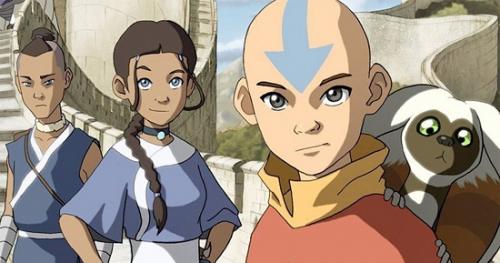The Case for a Second Series After Avatar: The Last Airbender

If you have watched both Legend of Korra and Avatar: The Last Airbender, you might be able to recognize the fact that many of the concepts on the second series are a response to its predecessor. The original series, Avatar: The Last Airbender sets up the mythology while the sequel basically portrays the challenges that old traditions present to relatively modern society. There is also a greater emphasis on reforms that alter the course of the Avatar world. The legend of Korra does an excellent job of creating quite an ambitious show with a strong storyline, and they deserve all the credit they get. But Korra would have done much better if there was a second series between the two shows.
It is a very common narrative to make a show in which the characters are able to get over the traditions that were set up in the original series. But Korra’s legacy will undoubtedly pale in comparison to that of Aang’s since she has had to follow up on the legacy of arguably the most astonishing Avatar to have ever lived. Aang was able to make a reputation for himself that will easily be memorable for fans for a long time, so to stand toe-to-toe or to even fill up his shoes is a monumental task.
The show, without a doubt, does a great job of coming to grips with such a homunculus task. It can be seen with each season Korra grows emotionally and psychologically while she grapples with the challenges in front of her. She faces innumerable problems that are incomparable to those faced by Aang. She has successfully made a name for herself by taking courageous decisions that challenge the status quo. The only thing that makes the story seem lacking in some ways is because of the considerable time gap between Korra and Aang’s time which could have been avoided by creating a second series between the two existing ones.
The world of Aang was entangled with so many traditional and cultural norms that it feels too old. The Legend of Korra was able to provide the much-needed revolution that the franchise desperately needed to create a better bond with the audience. The best scenario should have been to retain the cast of Avatar: The Last Airbender to create a second series which would have explored Avatar’s life as a father and a husband, while also showing Zuko’s reign as the Fire Lord. Doing this would have avoided the decades of gap between the two existing series and Avatar world would have gotten older much more organically.
The second series would have also helped the audience to see the growth of characters more closely without any discontinuity. But the 70 years gap seems to be too long as it makes the maturation of the characters seem more puzzling and unnatural. The fact that the audience was shocked to find out that Aang was not such a great father as he was quite ignorant to the needs of his children shows the unnatural discontinuity in the character growth which can only be explained because of the lack of the second series.
The purpose of a second series is not only to avoid discontinuity but the fact that it would have been able to establish a setting for the Legends of Korra. The second series would have been able to help with all of these issues while at the same time, it would have given the audience a chance to appreciate Legends of Korra more. But unfortunately, the 70-year gap has taken away so much from the fans that it leaves them disappointed at times. Therefore, in an ideal world, The Legends of Korra should have been the third avatar series and not second.
Devin Smith is a creative person who has been writing blogs and articles about cybersecurity and utility software programs. He writes about the latest updates regarding norton.com/setup and how it can improve the work experience of users. His articles have been published in many popular e-magazines, blogs, and websites.
Source:-https://norton4.uk.com/the-case-for-a-second-series-after-avatar-the-last-airbender/
Post Your Ad Here
Comments